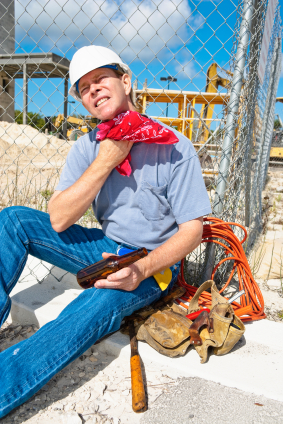What kills more people each year than floods, lightning, tornadoes and hurricanes combined? Heat! Heat is the number one weather-related killer in the nation, according to records at the National Oceanic and Atmospheric Administration (NOAA) National Weather Service. In 1980, a heat wave claimed close to 1,250 lives across the nation. Later, in 1995, more than 700 people in the Chicago area alone were killed because of heat related issues according to NOAA’s records. This may have people thinking… How Hot is Too Hot?

Currently, the United States is suffering from a terrible heat wave. According to NOAA, 33 states issued heat advisories the week of July 17–July 23, an area affecting 100 million people. On July 19, 13 states hit the 100 °F, while 40 other states were in the 90’s. In Saint Louis, temperatures will be in the mid to high 90’s the week of July 25–30, with heat index being near the 100’s.
According to MEDscape.com, an online journal ran by the WebMD Health Professional Network, when a person’s runs a temperature of 106 °F or more that person is at a great risk of a heatstroke. WebMD defines heatstroke as, “When the body fails to regulate its own temperature and the body temperature continues to rise above 105 °F”.
There are two different forms of a heat stroke. Exertional heatstroke (EHS), usually affects individuals partaking in highly physical and energetic activities in the heat. The second is nonexertional heatstrokem which generally affects children 4 years of age and younger, and elderly people exposed to heat for long periods of time, says medscape.com.
What is exactly happening to the body during a heat stroke? The Centers for Disease Control and Prevention (CDC) reports that the body is overheated and can’t fix its temperature with its normal procedures. For example, normally, when the body heats up, it sweats to cool down. Certain factors, however, can keep the body from sweating. For instance, if the humidity is high it becomes harder for sweat to evaporate and thus sits on your body. Other factors that can affect properly sweating include weight, age, and dehydration. The CDC reports that when sweating fails, the body heats up rapidly and the person suffers heatstroke.
WebMD states that signs that a person may be suffering from a heatstroke can include temporary loss of consciousness, difficulty breathing, temperature of 106 °F, confusion and a fast heart rate. Heatstroke can eventually lead to death if not treated soon enough; last year over 130 people died due to heat related issues.
| Related story: H20, Is it in You? |
If you think someone is suffering from a heat stroke call 911, and proceed to move the victim to a cool place. Proceed to remove any extra clothing, ice the victim down, sponge the person down with cool but NOT cold water, and if the person is awake have them drink water. Damonte Johnson

This work is licensed under a Creative Commons Attribution-NonCommercial-NoDerivs 3.0 Unported License
















Good to know. I will keep these facts about heat in mind next time i go outside.
I have extreme issues with the heat. The part of my brain that is supposed to control my body temp. doesn’t work correctly.
I hope that construction worker is hydrating with water and not some C2H5OH concoction…
Great article, Damonte. You wrote a great story, at the exact time when it was timely and most relevant. Way to get it done so quickly!
that’s why my mom dosen’t let us outside on some days of the summer.
Great article very informing
This is a good artical because it gives u information on what to do when there is some one who faints from a heatstroke. tells how bad a heat stroke really is
Good info to know about heat